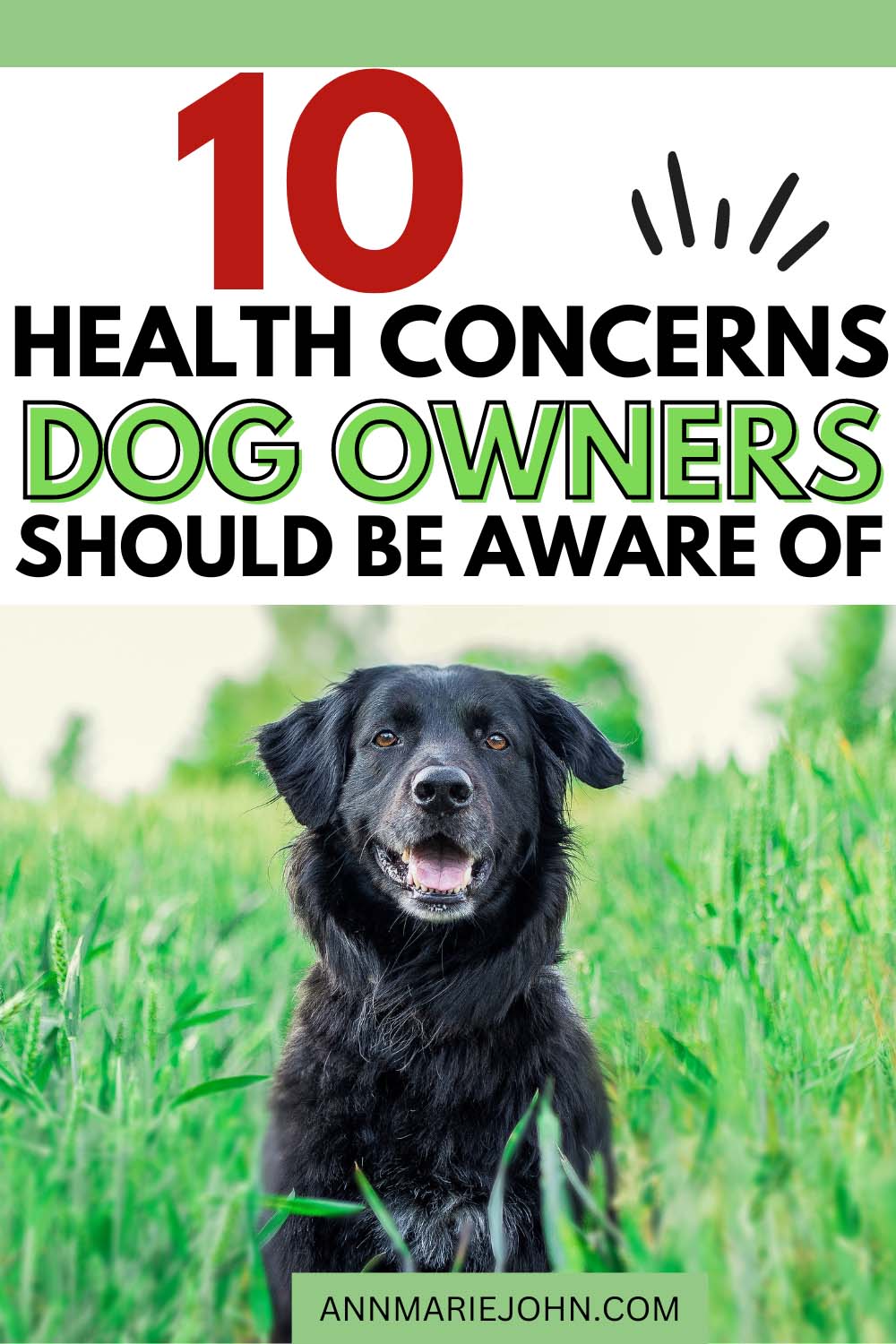Stay informed about your furry friend’s well-being. Explore the top 10 health concerns for dogs that every owner should be aware of.

As loving dog owners, it’s our responsibility to ensure the well-being of our furry companions. Just like humans, dogs can face a variety of health concerns throughout their lives. Being aware of these issues and understanding how to prevent and address them is crucial for maintaining the health and happiness of our canine friends. In this article, we’ll explore the top 10 health concerns that every dog owner should be familiar with, from obesity to anxiety.

1. Obesity
Obesity is a significant health concern for dogs, just as it is for humans. Overweight dogs are at a higher risk of developing various health problems, including diabetes, arthritis, and heart disease. To prevent obesity in your dog, ensure they have a balanced diet, avoid overfeeding, and provide regular exercise.
2. Dental Issues
Dental problems are common among dogs, yet they are often overlooked by owners. Poor dental hygiene can lead to gum disease, tooth decay, and even organ damage. Brushing your dog’s teeth regularly, providing dental chews, and scheduling professional cleanings can help prevent dental issues and keep your dog’s mouth healthy.
3. Heartworm Disease
Heartworm disease is a potentially fatal condition caused by parasitic worms that infect the heart, lungs, and blood vessels of dogs. Prevention is key, and there are various medications available to protect your dog from heartworm infection. Regular testing and year-round prevention are essential, especially in areas where mosquitoes are prevalent.
4. Fleas and Ticks
Fleas and ticks are more than just a nuisance—they can transmit diseases and cause serious health problems for dogs. Regularly check your dog for signs of fleas and ticks, use preventive treatments, and keep your dog’s environment clean to reduce the risk of infestation.
5. Allergies
Just like humans, dogs can suffer from allergies to various substances, including pollen, food ingredients, and certain materials. Allergy symptoms in dogs may include itching, skin irritation, and digestive issues. Identifying and avoiding the allergen, along with veterinary guidance, can help manage your dog’s allergies effectively.
6. Arthritis
Arthritis is a common condition in older dogs but can also affect younger dogs, especially those with joint abnormalities or injuries. Signs of arthritis in dogs include limping, stiffness, and difficulty moving. Providing a comfortable living environment, maintaining a healthy weight, and incorporating low-impact exercises can help manage arthritis and improve your dog’s quality of life.
7. Cancer
Cancer is a leading cause of death in dogs, with certain breeds being more predisposed to specific types of cancer. Early detection is crucial for successful treatment, so be vigilant for any unusual lumps, bumps, or changes in your dog’s behavior or appetite. Regular veterinary check-ups and screenings can help catch cancer in its early stages.
8. Parvovirus
Parvovirus is a highly contagious viral disease that affects dogs, particularly puppies. Symptoms include severe vomiting, diarrhea, lethargy, and dehydration. Vaccination is the best way to prevent parvovirus, so make sure your dog is up-to-date on their vaccinations and avoid exposing them to unvaccinated or sick dogs.
9. Dehydration
Dehydration can occur in dogs due to various factors, such as hot weather, illness, or insufficient water intake. Signs of dehydration include dry gums, sunken eyes, lethargy, and excessive panting. Always provide your dog with access to clean, fresh water, especially during hot weather or after physical activity.
10. Anxiety
Anxiety is a common problem in dogs and can manifest in various ways, including separation anxiety, noise phobias, and fear of new environments. Understanding the triggers and symptoms of anxiety in your dog is essential for providing appropriate management and support. Techniques such as desensitization, counterconditioning, and behavioral therapy can help alleviate anxiety in dogs.
In Conclusion
Being a responsible dog owner involves more than just providing food and shelter—it means taking proactive steps to safeguard your dog’s health and well-being. By familiarizing yourself with these top 10 health concerns and implementing preventive measures, you can help ensure that your canine companion leads a long, happy, and healthy life. Remember, regular veterinary care, a balanced diet, exercise, and plenty of love and attention are the foundations of good canine health.
